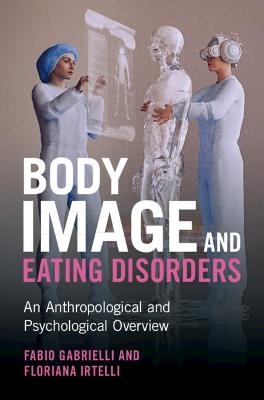
Body Image and Eating Disorders
Cambridge University Press (Verlag)
978-1-316-51430-6 (ISBN)
One of the paradoxes of our current era is that only 10% of obese or overweight people are actually dieting, whereas nearly 20% of the remaining population are trying to lose weight, even if they do not need to. This volume looks into our contemporary relationship with food by inserting current body image and eating disorders, like orthorexia and bigorexia, into a broader, historical overview. Gabrielli and Irtelli combine their knowledge of psychoanalysis and anthropology with scientific research and clinical experience to create this truly interdisciplinary work. Their study uses psychoanalytical theories about our 'hyper-modern' times to trace the impact that mass media has on individuals, families and societies. It explores various 'food tribes' and exposes the contradictions of today's mass media that advertise fitness and dieting alongside increasingly tastier and accessible foods. The work helps us to understand our highly social relationship with our bodies and what we eat.
Dr. Fabio Gabrielli is a clinical practitioner and Professor of Philosophical Anthropology and Biochemistry at Ludes University of Lugano, Switzerland where he has previously served as Dean. Gabrielli has published over two hundred works including papers on 'Quantum Human and Animal Consciousness' (2011) and 'Considerations on Blood Platelets: A Neuron's Mirror for Mood Disorders?' (2012). Floriana Irtelli is a lecturer at the Catholic University of the Sacred Heart, Milan. She is a psychoanalyst and psychotherapist. Irtelli also works at the Fatebenefratelli Hospital, Milan, performing research and clinical activities. She has edited collections on Psychosis (2018) and Family Therapy (2019). Her most recent book is about Contemporary Perspectives on Relational Wellness (2018).
Part I. Contemporary Perspectives in Anthropology, Philosophy, and Psychology on the Human Body: An Introductory Overview: 1. The conception of the human body: An evolutionary study from ancient times to the hypermodern era; Part II. Brain Without Body, Body Without Brain, and Contemporary Body Image Disorders: 2. Body schema, body image, and hypermodern alterations; 3. Alexithymia and somatizations; 4. The myth of the perfect body image, body dysmorphic disorder, and bigorexia; 5. The complex relationship between the mind, the body, and the contemporary environment; Part III. A Specific Analysis: The Hypermodern Contradictory Relationship With Food: 6. Contemporary social trends regarding food: paradoxes and food tribes; 7. Orthorexia; 8. Contemporary perspectives on eating disorders; 9. Nervous bulimia and binge eating disorder: A contemporary overview; 10. Contemporary on obesity; Part IV. Which Possible Horizons? Some Final Considerations: 11. Body image, narcissims, and depression; 12. The global process of psycho-bodily development.
| Erscheinungsdatum | 01.06.2022 |
|---|---|
| Zusatzinfo | Worked examples or Exercises |
| Verlagsort | Cambridge |
| Sprache | englisch |
| Maße | 156 x 235 mm |
| Gewicht | 400 g |
| Themenwelt | Geisteswissenschaften ► Psychologie ► Klinische Psychologie |
| Geisteswissenschaften ► Psychologie ► Sozialpsychologie | |
| Medizin / Pharmazie ► Medizinische Fachgebiete ► Psychosomatik | |
| Medizin / Pharmazie ► Medizinische Fachgebiete ► Psychiatrie / Psychotherapie | |
| ISBN-10 | 1-316-51430-7 / 1316514307 |
| ISBN-13 | 978-1-316-51430-6 / 9781316514306 |
| Zustand | Neuware |
| Informationen gemäß Produktsicherheitsverordnung (GPSR) | |
| Haben Sie eine Frage zum Produkt? |
aus dem Bereich


